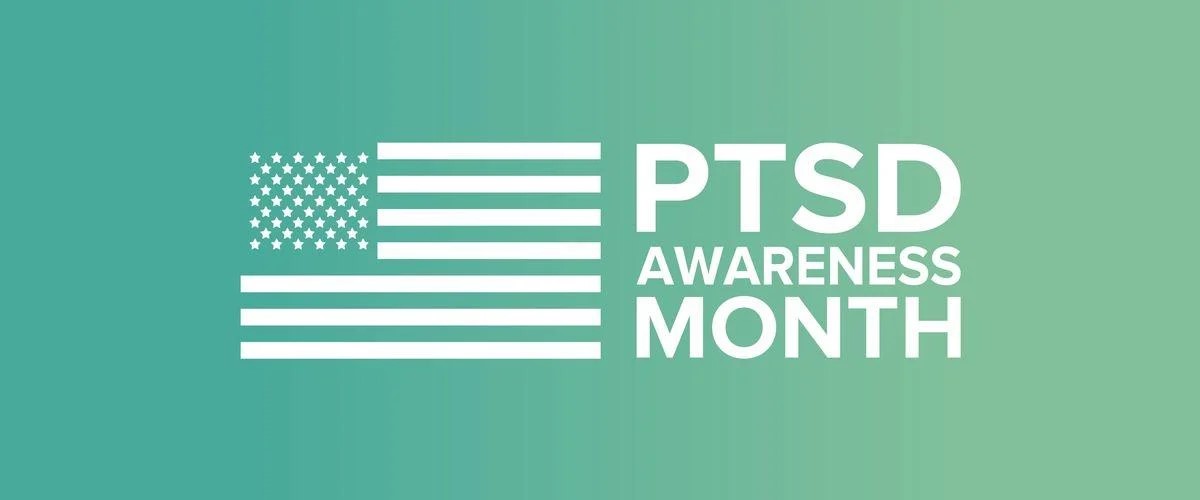What is PTSD?
PTSD stands for post-traumatic stress disorder. It is a mental health disorder that can develop after experiencing or witnessing a life-threatening event. PTSD can develop immediately after the event or years later and the time frame for recovery can vary from months to years. Anyone can develop PTSD and it will happen completely out of control of the person afflicted. (National Center for PTSD)
The American Psychiatric Association added PTSD to its manual of mental health disorders in the 1980s, bringing it to the public eye. But the concept – which was previously referred to as, shell shock, soldiers’ heart, combat fatigue and war neurosis – has been around for centuries, even being described in poems referencing flashback dreams of battle trauma by Hippocrates. Mental health issues surrounding trauma have always been prevalent and became a major issue in the military world during WW1. During WW2 it is estimated that up to half of military discharges were PTSD related, according to the National Center for PTSD. (history.com)
The U.S. Senate recognized June 27th as National PTSD Awareness Day starting in 2010. Then in 2014, the entire month of June was declared National PTSD Awareness Month. (nationalday.com) Organizations supporting awareness and treatment for PTSD like The U.S. Department of Veterans Affairs, offer plenty of educational materials and links to help those suffering as well as advocates to help spread the knowledge.
Today, an estimated 7.7 million American adults are struggling with PTSD, according to the Anxiety and Depression Association of America. (history.com)
What Does PTSD Look Like?
PTSD symptoms are typically categorized as the following: intrusive memories, avoidance, negative changes in thinking and mood, and changes in physical and emotional reactions. Symptoms can vary over time as well as from person to person. If symptoms last longer than a month or are severe in nature, you should talk to your doctor or a mental health professional. Getting treatment as soon as possible can help prevent PTSD symptoms from getting worse. (mayoclinic.org)
Here are some symptoms to watch out for:
- Reoccurring and distressing memories
- Flashbacks
- Nightmares
- Avoiding places, activities or people that remind you of the traumatic event
- Negative thoughts about yourself, other people or the world
- Hopelessness about the future
- Memory problems, including not remembering important aspects of the traumatic event
- Difficulty maintaining close relationships
- Lack of interest in activities you once enjoyed
- Being easily startled or frightened
- Always being on guard for danger
- Self-destructive behavior (ex: drinking too much or driving too fast)
- Trouble sleeping
- Trouble concentrating
Symptoms can look different for everyone so the best thing you can do if you are worried about PTSD, is to reach out to a medical professional for help.
Resources you can use:
- National Suicide Prevention Lifeline: 1-800-273-TALK (1-800-273-8255)
- Veteran Crisis Hotline: 1-800-273- 8255 then press 1
- U.S. Department of Veterans Affair: https://www.ptsd.va.gov/understand/awareness/get_support.asp
- PTSD Self Screening: https://www.ptsd.va.gov/screen/
- Cost-free, barrier-free, stigma-free mental health treatment for our military community. https://getheadstrong.org/
- The Steven A. Cohen Military Family Clinic (Cohen Clinic) at Easterseals https://www.easterseals.com
Local Movie Screening for PTSD and Mental Health Awareness:
On June 23rd, representatives of The Baltimore Station attended the screening of Merit x Zoe, a film bringing the conversation of PTSD in the military, to the community. The short film starred Baltimore actress, Morgan Dixon, along with actress Haskiri Velazquez, and nine (9) veterans. Morgan organized the screening in Baltimore, inviting organizations, like our own, to attend and pass out information about their programs and what services are offered. What started out as an opportunity to welcome friends and family to see her work, turned into an event connecting the community as well as different organizations into a discussion of mental health and wellness.
A panel was set up for questions that included leaders of all three organizations that attended as well as Morgan Dixon. Our deputy director, Kim Callari, was able to speak to those who attended about the work we do here and our goals for the future. Outreach coordinator, James Hardy, passed out information about joining our program or referring those in need. Volunteer coordinator, Lilly Frazier, spoke with attendees about our volunteer program and the great impact it has on the men we serve.
Thank you to Morgan Dixon for organizing this event and inviting us to be a part of it! Here is a link to the site for more information about the short film and those involved: https://www.mxzfilm.com/
Sources Used
- “Va.gov: Veterans Affairs.” Understand PTSD, 5 Apr. 2019, https://www.ptsd.va.gov/understand/awareness/understand_ptsd.asp.
- History.com Editors. “PTSD and Shell Shock.” History.com, A&E Television Networks, 2 Oct. 2017, https://www.history.com/topics/inventions/history-of-ptsd-and-shell-shock.
- “National PTSD Awareness Month – June, 2021.” National Today, 29 Sept. 2021, https://nationaltoday.com/national-ptsd-awareness-month/.
- “Post-Traumatic Stress Disorder (PTSD).” Mayo Clinic, Mayo Foundation for Medical Education and Research, 6 July 2018, https://www.mayoclinic.org/diseases-conditions/post-traumatic-stress-disorder/symptoms-causes/syc-20355967.
Need of the Week
This week we are focused on ensuring every new resident has what they need to start their treatment on the right foot. We are asking for new or gently used and cleaned twin/full size blankets. Every man who enters our program receives a blanket on his first night here. With a program that welcomes about 300 residents in a year, you can see why we need blankets. Thank you, as always, for all your support!

Leave A Comment
You must be logged in to post a comment.